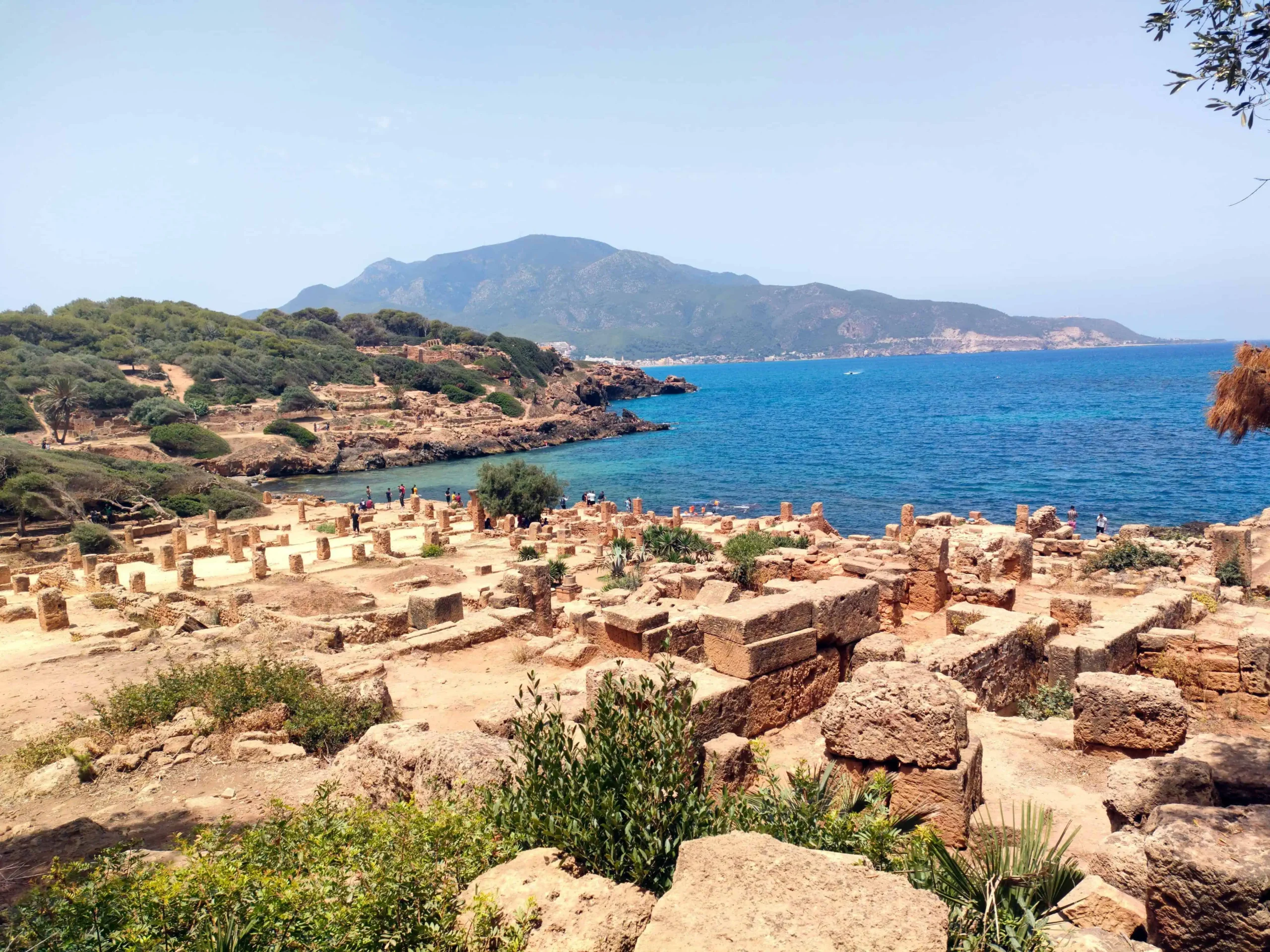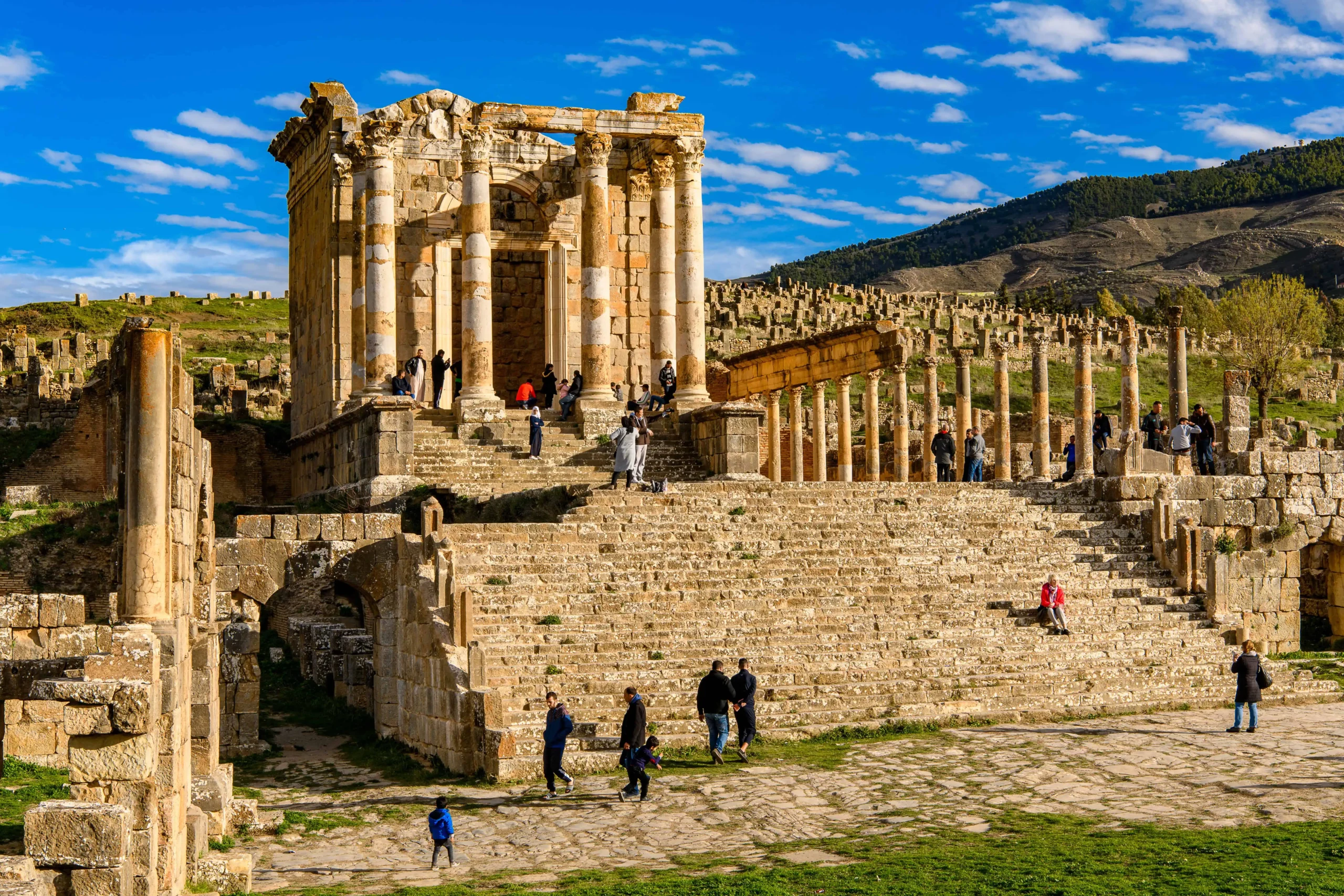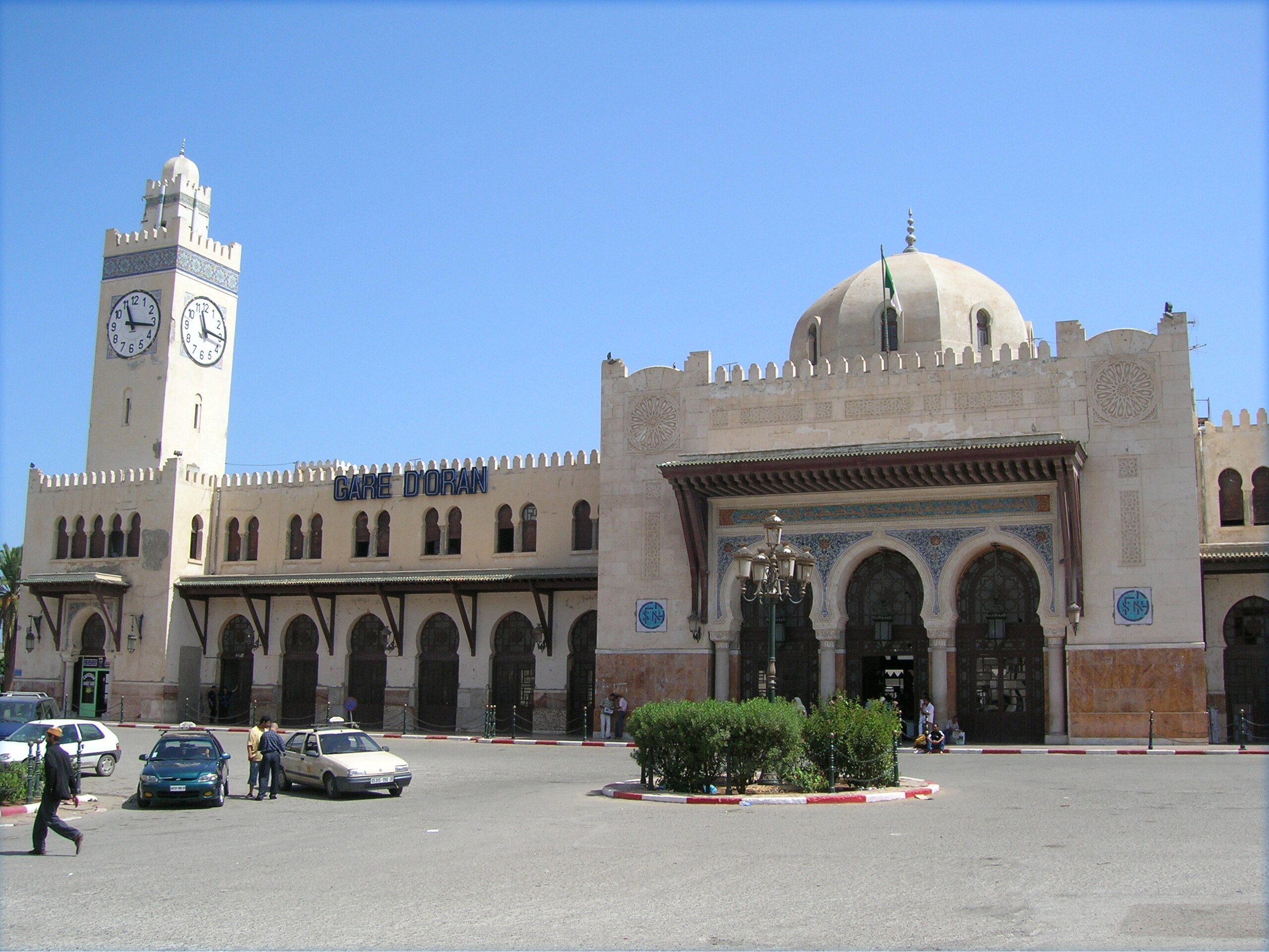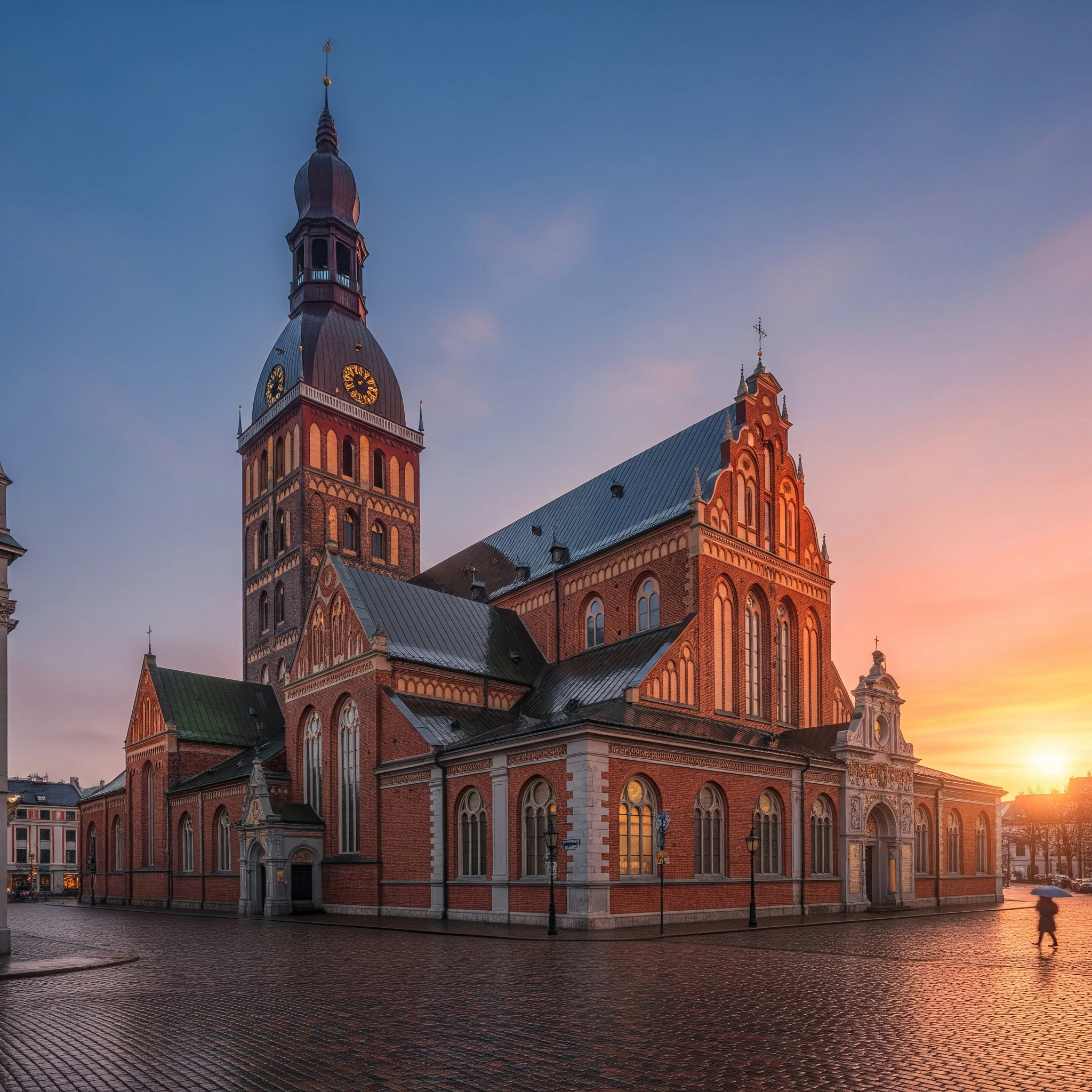Algeria, with its rich tapestry of Roman ruins, Islamic architecture, and Mediterranean coastline, is emerging as an intriguing destination for UK travellers. While questions about visiting Algeria are common, a new luxury rail journey from London offers an innovative way to explore this fascinating country.
Is Algeria Safe for Tourists According to Local Authorities?
Safety is often the first concern for those considering a visit to Algeria. When traveling with organised tours, Algeria offers a secure and enriching experience. Our London to Algeria adventure ensures safety through carefully planned routes and premium accommodation. Groups are limited to 12 travellers, with expert local guides and tour leaders managing all logistics throughout the journey.
Staying exclusively in carefully selected 4 and 5-star hotels, including the historic Royal Hotel in Oran and luxurious Sofitel Algiers, provides both security and comfort. These properties have been chosen not only for their high standards but also for their convenient locations near major attractions. The presence of Algerian security forces and local police further enhances safety and order, ensuring a secure environment for travellers.
Emergency operators and emergency services play a crucial role in ensuring traveler safety, although language barriers and varying standards of medical response should be considered.
Can You Visit Algeria from the UK via International Airports?
Visiting Algeria has become increasingly accessible for UK travellers. While direct flights are available from most major UK airports, our unique flight-free journey offers a more immersive experience, combining luxury rail travel through Europe with a Mediterranean sea crossing. The journey begins at London’s St. Pancras station, winding through France and Spain before crossing to Algeria’s welcoming shores.
The visa process, often a concern for travellers visiting Algeria, is fully supported with all necessary documentation provided. Our expert team handles the complexities of cross-border travel, allowing guests to focus on enjoying the journey.
Is Algeria a good a good holiday destination?
Yes, we think so. Algeria offers an authentic North African experience that has largely escaped mass tourism. Its rich heritage creates a unique cultural tapestry that makes visiting Algeria a rewarding experience. Local authorities play a crucial role in ensuring the safety of tourists and enforcing regulations and the availability of medical treatment is generally adequat, though it can vary in rural areas.
Here are the cultural highlights that make Algeria an exceptional holiday destination:
The UNESCO-listed Casbah of Algiers
The Casbah of Algiers stands as one of North Africa’s most impressive examples of Maghreb architecture. This historic heart of Algeria’s capital is a maze of winding streets and traditional houses that tell the story of centuries of Mediterranean history. When visiting Algeria, the Casbah offers an authentic glimpse into traditional urban life, with its distinctive architectural features including overhanging structures, intricate doorways, and beautiful mosaic work. UNESCO recognised this historic district not only for its architectural significance but also for its role in Algeria’s cultural heritage. Visitors can explore the narrow alleyways, discover hidden palaces, and experience the vibrant atmosphere of local markets, all while guided by expert historians who bring the Casbah’s rich history to life.
The Roman Ruins of Tipasa

Overlooking the Mediterranean Sea, Tipasa represents one of the most significant archaeological sites in North Africa. This UNESCO World Heritage site encompasses three distinct areas, each telling its own story of ancient civilisation. Visitors exploring Tipasa will discover three ancient churches, the remains of an old port, and a remarkable amphitheater. Perhaps most impressive are the Roman villas, some still featuring their original mosaic floors, offering insight into daily life during the Roman empire. The site’s coastal location provides spectacular views across the Mediterranean, making it not only historically significant but also one of the most picturesque locations when visiting Algeria.
Constantine: The City of Bridges
Known as the “City of Bridges,” Constantine presents one of the most dramatic urban landscapes in North Africa. The French writer Alexandre Dumas aptly described it as “a fantastic city, something like Gulliver’s flying island.” Founded over 2,000 years ago on a plateau surrounded by deep ravines, Constantine’s natural defenses made it an ideal settlement. Today, the city is connected by seven spectacular bridges spanning these gorges, creating breathtaking views and photo opportunities. The most famous, the Sidi M’Cid suspension bridge, offers visitors unforgettable views of the city’s unique topography. When visiting Algeria, Constantine’s combination of natural drama and architectural innovation makes it an essential stop.
The Ancient City of Djemila

Djemila stands as one of North Africa’s finest and best-preserved Roman sites, earning its place among UNESCO World Heritage sites. The ancient city of Cuicul, as it was known in Roman times, presents a remarkable example of Roman urban planning adapted to a mountain environment. Visitors can walk along wheel-rutted streets lined with elaborate houses, exploring the forum, basilica, triumphal arches, and temples. The site’s museum houses an extraordinary collection of mosaics, providing insight into Roman life in North Africa. The preservation and setting of Djemila make it one of the most impressive archaeological sites when visiting Algeria.
Oran: Where Cultures Converge
Oran, Algeria’s second-largest city, offers visitors a unique blend of Spanish, French, and Algerian influences. The city’s Spanish heritage dates back to more than two centuries of occupation before the French period began in the 19th century. This rich history is evident in landmarks such as Santa Cruz fort and chapel, the Cathedral of Sacré Coeur, and the Bey’s Palace. As the hometown of fashion designer Yves Saint Laurent and novelist Albert Camus, Oran continues to inspire visitors with its cultural vibrancy and Mediterranean charm. The city’s position as a cultural crossroads makes it a fascinating destination when visiting Algeria.
Beni Hammad: An Ancient Capital
The UNESCO World Heritage site of Beni Hammad Fort represents one of the most interesting Islamic archaeological sites in North Africa. This former capital of the Hammadid dynasty offers visitors insight into medieval Islamic civilisation. The site features the remains of a great mosque, palaces, and an extensive urban complex, demonstrating sophisticated architectural and decorative styles that influenced Maghreb art and architecture for centuries.
Unique Experiences in Algeria
Our 14-day journey enriches the experience of visiting Algeria with memorable moments:
- Lunch at Paris’s historic Train Bleu restaurant
- Wine tasting in Spanish vineyards
- Gourmet market tours in Valencia
- Traditional Algerian cuisine throughout the journey
- Expert-led tours of UNESCO World Heritage sites
Essential Information and Emergency Services for Visiting Algeria
The best time for visiting Algeria is during spring and autumn, when mild temperatures create ideal conditions for exploration. Our tours operate during these optimal seasons, ensuring comfortable sightseeing conditions.
Transportation in Algeria
When driving in Algeria, visitors can use their national driver’s license for up to three months. However, if you plan to stay longer than three months, it is advisable to obtain an international driving licence to avoid legal issues and facilitate driving rights.
Visa to Algeria
Travellers to Algeria must obtain a visa from an Algerian embassy or consulate in advance of travel. The visa process can be complex, and requirements may vary depending on the country of origin and purpose of travel. It is essential to check with the Algerian embassy or consulate for the latest information and to ensure that all necessary documents are in order. In addition to a valid passport, travellers may need to provide proof of onward travel, proof of sufficient funds, and a letter of invitation or sponsorship. The visa application process can take several weeks, so it is recommended to apply well in advance of travel.
Travel Insurance
Travellers to Algeria are strongly advised to obtain comprehensive travel insurance that covers all overseas medical costs, including medical repatriation/evacuation, repatriation of remains, and legal costs. Medical facilities in Algeria may be limited, especially in rural areas, and medical evacuation to a neighbouring country or Europe may be necessary in the event of a serious illness or injury. Travel insurance should also cover trip cancellations, delays, and interruptions, as well as loss or theft of personal belongings.
Language in Algeria
The official language of Algeria is Arabic, and French is also widely spoken. English is not as widely spoken, but many young people learn it in school. Communication can be a challenge, especially for those who do not speak Arabic or French, which is why we recommend traveling with an escort, such as on our London to Algeria by Rail Adventure. It is recommended to learn some basic phrases in Arabic and French to help with communication. Many Algerians also speak Berber languages, such as Kabyle and Chaouia. Travellers may also encounter some English speakers in major cities, particularly in the tourism industry.
Transportation in Algeria
Algeria has a well-developed transportation network, including international airports, major highways, and public transportation systems. The country has several international airports, including Houari Boumediene Airport in Algiers and Es-Sénia Airport in Oran. Major highways connect the country’s major cities, and public transportation systems, including buses and trains, are available in most cities. Taxis are also widely available, but may not always be metered. Travellers can also rent cars, but an international driving permit is required. Overland travel is also possible, but may require special permits and documentation.
Food in Algeria
Algerian cuisine is a blend of Mediterranean, Arab, and Berber influences. Traditional dishes include couscous, tagines, and pastilla. Fast food is also widely available, particularly in major cities. However, travellers may find that traditional Algerian cuisine is not always easy to find, especially in rural areas. Food is generally cheap, and travellers can eat at local restaurants or buy ingredients at markets. Travellers should also be aware of local customs and traditions surrounding food, particularly during Ramadan.
What’s Included When Visiting Algeria With Us
- Professional tour leader services throughout
- Local English-speaking guides
- First-class rail travel through Europe
- Private en-suite cabin for Mediterranean crossing
- 4 and 5-star hotel accommodation
- Daily breakfast plus selected lunches and dinners
- All entrance fees to listed sites
Visiting Algeria Desert through this innovative rail journey combines the excitement of discovering North Africa’s largest country with the romance of traditional travel. It offers an opportunity to explore one of the Mediterranean’s most fascinating destinations while enjoying a level of comfort and security that makes the journey as memorable as the destination itself.
If you have any questions about Algeria, or our London to Algeria tour, contact our travel team and we’d be happy to help.



